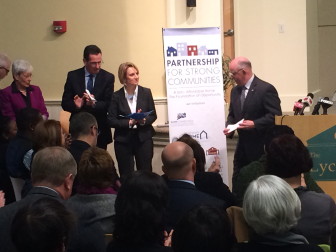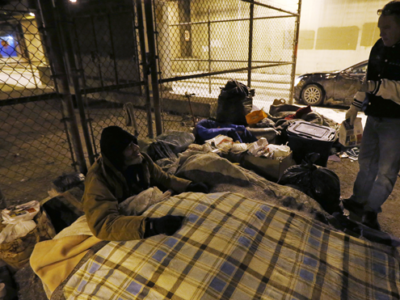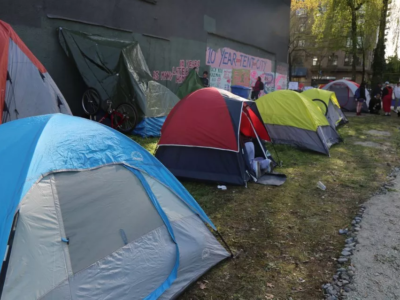
Fifty-one years after Lyndon Johnson declared “unconditional war” on poverty in his first State of the Union, anti-poverty workers allowed themselves a small celebration Wednesday, cheering an assertion that Connecticut is on the verge of eliminating chronic and veterans’ homelessness.
“This is not a distant dream any longer,” Gov. Dannel P. Malloy told an audience in Hartford, announcing that Connecticut was one of a half-dozen states chosen for Zero 2016, a final push to win one battle in the long war on poverty.
Connecticut has about 1,000 chronic homeless, including veterans, down from 10,000 a decade ago, a reduction that anti-poverty workers attribute to a smarter national approach and increased resources committed locally by the Malloy administration.
Reaching “zero,” of course, does not truly mean an end to homelessness, a time when the shelters can close. A United Way report last fall found that 474,445 residents here struggle to afford the basic necessities of food, clothing, housing, medical care, child care and transportation.
Homelessness for many of them can be a layoff or illness away, said Lisa Tepper Bates, a former U.S. diplomat who is now the executive director of the Connecticut Coalition to End Homelessness. They are on the “knife’s edge,” she said.
“Ending homelessness doesn’t mean preventing anyone from ever becoming homeless again,” said Alicia Woodsby, executive director of the Partnership for Strong Communities. “It’s about creating a system that knows how to get them out quickly and prevent them from returning. There will be an end to homeless when it’s rare, brief and non-recurring.”
Catherine Zall, the executive director of the Homeless Hospitality Center, who is in the nightly business of trying to match pillows to people as temperatures drop, smiled when asked what she thought about an end to homelessness, by whatever definition.
“I’m so in the day-to-day of it, I don’t put my head up enough,” she said.
But Zall, who drove to Hartford to applaud Malloy’s announcement at a ceremony at the Lyceum conference center, said the progress was real enough and worth celebrating.
“I think it’s really important, because people are so skeptical about the ability of government, non-profits,” Zall said. “People think, ‘Oh, these investments don’t matter.’ We can, by investing significant but not extraordinary amounts of money, really make a difference for people who are really at the very bottom.”
The efficacy of Johnson’s war on poverty is debated today, but it produced lasting programs, such as food stamps, Medicare and Medicaid, Head Start and VISTA, which have demonstrably reduced poverty rates.
But Johnson aimed higher: “Our aim is not only to relieve the symptoms of poverty, but to cure it and, above all, to prevent it.”



